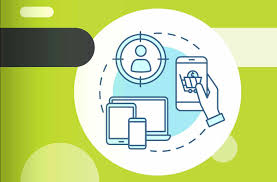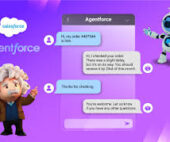AI Agents Are the Next Wave of Generative Technology
How AI Agents Are the Next Wave of Generative Technology The rise of agentic technology marks a pivotal evolution in artificial intelligence, signaling a shift from mere assistive tools to autonomous agents capable of complex, multi-step tasks. While excitement abounds, this new wave of AI also raises questions about its practical application and long-term impact. AI agents—autonomous tools designed to perform tasks independently—are rapidly gaining traction across industries. Vendors and developers are positioning them as the future of generative AI, enabling organizations to streamline workflows and unlock new efficiencies. However, concerns remain regarding the scope of tasks assigned to these agents and their return on investment (ROI). A Growing Presence at Industry Events The growing curiosity and cautious optimism surrounding AI agents were palpable at the recent AI Summit conference. “AI agents are here, and they’re scaling,” said Tim Cotten, CEO and founder of Scripted Inc., a generative AI platform for game development powered by autonomous agents. Speaking during a session on AI in game development, Cotten predicted that a third of companies present at the summit would likely adopt agent-based solutions in the near future. Cotten emphasized the transformative potential of AI agents: “Agents allow you to spread your influence while you’re asleep. They can do the job for you, generate new ideas, and even create additional agents to tackle emerging needs.” However, he also highlighted a critical challenge: ensuring agents remain focused on well-defined tasks. Overloading agents with responsibilities beyond their scope can lead to inefficiencies and diminished outcomes. Specialized Agents vs. General-Purpose Agents The debate between using specialized agents versus general-purpose agents continues to shape the discussion around agentic AI. According to Atif Khan, Chief Artificial Intelligence Officer at Semantex: “If you have a large application with different components, it’s better to deploy specialized agents for each task. For example, one agent could handle search, another documentation, and others for accounting or customer service.” Khan advocated for modular, independent agents that can be trained and refined individually, rather than a single, all-encompassing agent. This approach not only improves efficiency but also reduces the risk of “hallucinations,” or inaccuracies, that can arise when agents attempt to manage overly complex workloads. Mitigating Risks and Maintaining Oversight Despite their autonomy, AI agents still require oversight to ensure accuracy and compliance. Drayton Wade, COO at Kognitos, stressed the importance of human validation: “Organizations must determine where human review is necessary, especially in high-stakes environments like finance, where agents operate at scale and speed.” Logging agent activities and involving humans in critical decision-making processes can mitigate risks and create accountability, Wade added. Agentforce for Sales: Unlocking New Possibilities One of the most promising applications of agentic technology is in sales, where AI agents can significantly boost productivity and enhance customer experiences. Agentforce for Sales is a cutting-edge suite of tools designed to create and deploy both autonomous and assistive sales agents within Salesforce environments. These agents handle tasks such as lead qualification, pipeline building, case deflection, and sales coaching, allowing sales reps to focus on high-value activities. Types of Agentforce Sales Agents The Future of Agentic Technology AI agents are ushering in a new era of generative technology, enabling businesses to scale operations and optimize workflows. However, their success depends on thoughtful deployment, clear task delineation, and ongoing human oversight. By embracing solutions like Agentforce for Sales, organizations can maximize the potential of agentic AI, transforming how teams work and paving the way for continued innovation. The question is no longer whether to adopt AI agents but how to deploy them effectively to achieve lasting impact. Like Related Posts Salesforce OEM AppExchange Expanding its reach beyond CRM, Salesforce.com has launched a new service called AppExchange OEM Edition, aimed at non-CRM service providers. Read more The Salesforce Story In Marc Benioff’s own words How did salesforce.com grow from a start up in a rented apartment into the world’s Read more Salesforce Jigsaw Salesforce.com, a prominent figure in cloud computing, has finalized a deal to acquire Jigsaw, a wiki-style business contact database, for Read more Health Cloud Brings Healthcare Transformation Following swiftly after last week’s successful launch of Financial Services Cloud, Salesforce has announced the second installment in its series Read more








